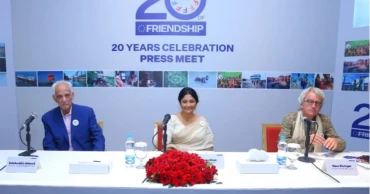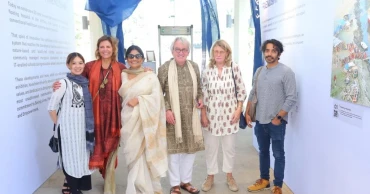friendship
Why Making and Keeping Friends is Harder as an Adult
Children can make new friends easily. But as an individual passes childhood and adolescence, the circle of friends becomes smaller. And, reaching a mature age, many people discover that it’s not easy anymore to find true friendships. Entering adulthood brings a myriad of responsibilities and often causes a shift in priorities. While friendships are cherished, making new connections becomes notably challenging. This article delves into the intricacies of forming friendships in adulthood while exploring the hurdles many grown-up people face in this endeavour.
Why is it Difficult to Develop News Friendship at a Mature Age?
Changing Dynamics in Adulthood
When a person enters professional life and eventually starts a family, responsibilities take centre stage. Then day by day issues like career, conjugal life, children, and other personal pursuits become focal points of that person’s life, leaving less time and energy for socialising. The shift in priorities can lead to a natural distancing from the spontaneous social interactions that characterise youth.
Established Social Circles
Entering established friend groups can be challenging. Long-lasting friendships often have a shared history which makes it harder for newcomers to find common ground. Breaking into these circles demands effort and a willingness to navigate existing dynamics.
Read more: How to Buy a Used Motorcycle: A Detailed Checklist
Fear of Rejection
The fear of rejection intensifies with age. Mature individuals may hesitate to initiate friendships and fear that others may not reciprocate. This fear is rooted in the vulnerability of opening oneself to potential rejection which makes the process more daunting.
Communication Styles
Differences in communication styles between individuals can pose obstacles. Due to professionalism and social norms, adults usually maintain distinct approaches to conservation and socialising with new people they meet.
However, an indecent approach or over-enthusiasm to create a connection with new people may lead to misunderstandings or discomfort. Navigating the decent and right way of communication requires patience and adaptability.
Read more: Bearing Legacy Mindset: How Do You Want to Be Remembered?
Limited Opportunities
Studies indicate that, on average, it requires approximately 50 hours to form a casual friendship, while developing close friendships demands an investment of around 200 hours. As responsibilities pile up, opportunities for socialising diminish.
Work demands, family commitments, and other obligations leave little room for older adults to make spontaneous social encounters. As a result, finding time to nurture new friendships becomes a rare occurrence.
Preconceived Notions
When a child makes a new friend, it starts with a pure mind without prejudice. But it rarely happens in the case of mature persons.
Read more: Micro-acts of Joy: Secret to Being Happier and Healthier?
Preconceived notions about individuals’ geographical, religious, political or social identity can hinder the formation of friendships among adults. Stereotypes and expectations based on age can create barriers and prevent people from seeing beyond assumptions and embracing the potential for meaningful connections.
Building Trust Takes Time
Trust is one of the most crucial elements of any friendship, and it tends to take longer to develop in mature relationships. Past experiences, caution, and a heightened awareness of personal boundaries contribute to the gradual nature of trust-building.
1 year ago
Parenting a Teenager? 10 Tips to be Their Best Friend
In today's world, parents often face a significant dilemma when raising a teenager. During this stage of life, the teens strive for independence while still requiring guidance and support from their parents. Striking the right balance between being a parent and being a friend to an adolescent child is quite challenging. Let’s take a look at some effective tips for parents to establish a strong, supportive, and amicable relationship with their teenage children.
10 Tips for Parents to Form Friendship with Their Adolescent Children
Open Communication
Strong parent-teen bond hinges on effective communication. Parents should endeavour to foster open, non-judgemental dialogues with their teenage sons and daughters. It creates a safe space for them to freely express their thoughts and emotions. It is essential to bear in mind that actively listening, rather than merely hearing, conveys a genuine interest in their perspective.
Allowing them the freedom to convey their feelings and ideas, even in cases of disagreement, nurtures trust. Trust, nurtured through open, non-judgemental conversations, forms the foundation of a healthy, enduring relationship with adolescents.
Read more: Fire Safety Tips for Parents to Keep Children Safe
Respect Their Independence
Adolescents strongly desire independence. Granting freedom at a certain level enables them to learn from both their triumphs and missteps, fostering personal growth. Trusting their judgement, even when it may seem risky, demonstrates faith in their abilities and boosts their self-esteem.
However, maintaining a guiding presence is equally important, stepping in when necessary to provide advice and support. Striking this balance of trust and guidance empowers teenagers to become responsible, self-reliant individuals. It also shows that they can turn to parents when needed.
Shared Interests
Discovering shared hobbies or interests is a powerful way to nurture parent-teen friendships. These mutual activities can be anything, from participating in a sport to pursuing a shared hobby or even jointly binge-watching a TV show.
Read more: Sibling Bullying and Abuse: Reasons, Types, Signs and Prevention
Engaging in such activities forges a unique bond that transcends the conventional parent-child dynamic. It connects on a personal level and promotes not just enjoyable moments but also meaningful conversations. Sharing interests deepens the connection, rendering the relationship more enjoyable.
2 years ago
‘Bangladesh has gone into the sphere of great power. It's about friendship, not enmity’: Quader
Awami League General Secretary and Road Transport and Bridges Minister Obaidul Quader on Saturday (September 09, 2023) said Bangladesh has gone into the sphere of great power.
He said this while addressing a peace rally organized by Dhaka Metropolitan South Awami League at Bangabandhu Avenue in the capital on Saturday afternoon. The rally was held to protest against BNP-Jamaat's terrorism, militancy, anarchy, and continued anti-national conspiracies.
Also read: BNP starts ‘new game’ using Dr Yunus: Quader
“What will happen to the BNP now after seeing Joe Biden's selfie with Sheikh Hasina at the G20 summit? It's not a fall, it's a retreat. Now we just have to go backwards. Where did their waves go? I don't think people will come to their (BNP’s) mass rallies anymore,” said the AL leader.
“BNP has brought an epidemic of lies across the country. Their leaders in villages also lie,” he said.
Urging the party leaders and workers to be ready, the Awami League general secretary said, “The peace rally will continue till the next election. BNP leaders and activists are now seeing darkness. Not a single one will sleep at night. The night's sleep has been forbidden.”
Also read: BNP wants to indulge in evil game of 1/11 with Dr Yunus at the helm: Quader
“BNP talks about movement but preparing for elections. Candidates will be given in all seats. If there is no candidate, how will Tarique Rahman's nomination business be done? BNP has lost the game. Only elections are left. They will also lose the final,” said Quader.
Awami League Presidium Member Matia Chowdhury, Advocate Kamrul Islam, Dr Mostafa Jalal Mohiuddin, among others, spoke at the rally.
Also read: BNP is not happy with good news of increase in remittances: Quader
2 years ago
Bangladesh-India Friendship Pipeline to vastly improve transport of diesel: New Delhi
The operation of the Bangladesh-India Friendship Pipeline will put in place a sustainable, reliable, cost-effective and environment friendly mode of transporting HSD from India to Bangladesh, said the Indian Ministry of External Affairs on Friday.
It will further enhance cooperation in energy security between the two countries, according to the MEA.
Prime Minister Sheikh Hasina and Indian Prime Minister Narendra Modi will inaugurate the India-Bangladesh Friendship Pipeline on 18 March via video-conference.
This is the first cross border energy pipeline between India and Bangladesh, built at an estimated cost of INR 377 crore, of which the Bangladesh portion of the pipeline built at a cost of approx. INR 285 crore, has been borne by the government of India under grant assistance.
The Pipeline has a capacity to transport 1 Million Metric Ton Per Annum (MMTPA) of High-Speed Diesel (HSD).
It will supply High Speed Diesel initially to seven districts in northern Bangladesh.
2 years ago
Friendship celebrates 20 years of transforming lives in remote, unaddressed communities
Friendship, an NGO working as a social purpose organisation, observed its 20 anniversary in the country with the commitment to continue its endeavour to promote the development of the remote and unaddressed communities at the forefront of the climate crisis.
On the occasion, addressing a press conference at the Intercontinental Hotel in the city on Friday Friendship founder Runa Khan said that in times of global crisis, Friendship’s mission and values are as relevant and important as ever.
“Today I believe, because of its impact, this work has to be scaled up and replicated with quality and dependability,” she added.
She mentioned that an unprecedented climate disaster and a global cost-of-living crisis push millions into poverty all over the world.
Friendship began its journey with an innovation: a floating hospital in the shifting river islands (chars) of the Brahmaputra/Jamuna River, where conventional healthcare systems were impossible to operate.
Due to the temporal nature of the landscape, Friendship was forced to innovate from the outset.
Friendship started in 2002 guided by its vision of a world where people—especially the hard-to-reach and unaddressed—have equal opportunities to live with dignity and hope.
Runa Khan said the Friendship’s work has been driven by an uncompromising commitment to its code of ethics and core values of integrity, dignity, justice, quality and hope.
Following the press conference, Friendship’s Char Theatre performed an adaptation from its repertoire of plays that address social issues like child marriage, dowry and basic rights in char communities.
Along with these events, an exhibition was organised at the same venue, displaying the preservation of the wooden boats of Bengal, handcrafted slow fashion products produced by char women, dignity inspired artwork by Friendship schoolchildren and the award-winning buildings designed by architect Kashef Mahbub Chowdhury.
Marc Elvinger, Co-Chair of Friendship International, Salahuddin Ahmed, chair of the board of directors of Friendship Bangladesh, Friendship national and international chairs, board members and other senior members of the organisation attended the events.
3 years ago
Friendship celebrates 20th founding anniversary
Friendship, a social purpose organisation, on Friday celebrated 20 years of its founding with the aim to bring opportunity, dignity and hope to remote and unaddressed communities at the forefront of the climate crisis.
Marking the anniversary, the organisation held a press conference at the Intercontinental Hotel in the capital on Friday.
Runa Khan, founder of the organisation, said “In these times of global crisis, Friendship’s mission and values are as relevant and important as ever”.
Read more: Friendship NGO: Small interventions add up to big role
“Today I believe, because of its impact, this work has to be scaled up and replicated with quality and dependability,” she said.
The organisation began its journey with an innovation: a floating hospital in the shifting river islands (chars) of the Brahmaputra/Jamuna River where conventional healthcare systems were impossible to operate.
Due to the temporal nature of the landscape, the social organisation was forced to innovate from the outset. That spirit of innovation resulted in its three-tier healthcare system that reaches the doorsteps of hard-to-reach communities, its nature-based and locally-led climate adaptation techniques, community managed mangrove plantations, and dismantlable, IT-enabled schools taking education where it was once impossible.
Friendship started in 2002 guided by its vision of a world where people—especially the hard-to-reach and unaddressed—have equal opportunities to live with dignity and hope.
Marc Elvinger, co-chair of Friendship International, Salahuddin Ahmed, chair of the board of directors of Friendship Bangladesh, Friendship national and international chairs, board members and other senior members of the organisation attended the events.
Read more: Friendship promotes distance learning
Following the press conference, Friendship’s Char Theatre performed an adaptation from its repertoire of plays that address social issues like child marriage, dowry and basic rights in char communities.
3 years ago
ITEC alumni in Bangladesh showcased strong bonds of friendship between Bangladesh, India: Pranay Verma
High Commissioner of India to Bangladesh Pranay Verma has said Bangladesh, as one of India’s closest development partner, occupies an important place in the Indian Technical and Economic Cooperation (ITEC) programme.
He described the unveiling of the Suborno Jayanti Scholarship this year as an example, where Bangladesh is recipient of 500 dedicated slots for ITEC every year, in addition to several tailor-made programmes for civil servants organised as per the requirement of Government of Bangladesh.
The High Commissioner said the ITEC alumni in Bangladesh showcased the strong bonds of friendship between India and Bangladesh.
The High Commission of India, Dhaka hosted a reception-cum-get together on Thursday evening to celebrate the 58th ITEC Day at the the Institution of Diploma Engineers Bangladesh (IDEB).
Liberation War Affairs Minister AKM Mozammel Huq attended the occasion as the chief guest.
ITEC, a flagship programme of the government of India, was instituted in 1964 as part of India’s Development Assistance Programme.
It has been offering the benefit of India’s development experience and appropriate technologies to more than 160 countries across the globe.
Read more:New Indian envoy Pranay Kumar in Dhaka
Every year, more than 10,000 training slots are offered to ITEC partner countries for training courses in various areas like Accounts, Audit, Good Governance Practices, Management, SME, Rural Development, Public Health, Parliamentary Affairs, Judiciary, Election Management, IT, Data Analytics, Remote Sensing, Renewable Energy etc. in premier Indian Institutes.
Bangladesh is the foremost and valued partner under the ITEC cooperation, said the Indian High Commission in Dhaka.
The enthusiasm could not be dampened even by COVID pandemic in 2020-21, when a number of courses were organized virtually under e-ITEC.
More than 4,500 young Bangladeshi professionals have undergone such specialized short and medium term courses in India under the ITEC programme.
These training programmes provide opportunities to share best Indian practices with the brightest minds in Bangladesh.
Read more: "Bangladesh-India are connected through the heart"
3 years ago
PM: Returning from UNGA with friendship for Bangladesh
Prime Minister Sheikh Hasina has said that she is returning from the United Nations General Assembly (UNGA) with friendship for Bangladesh.
She made the remark in response to a query regarding what she was returning home with from the 77th UNGA.
“Friendship, I’m returning home with friendship for Bangladesh. Everyone tried to mention Bangladesh’s development,” the PM said.
PM Hasina was speaking at a press conference held at Bangladesh’s Permanent Mission in the UN.
“The most important thing is that we want peace. I don't want war, I don't want conflict. I think I have been able to convey this message to everyone and everyone has appreciated Bangladesh and our role,” she said.
Replying to another question on investment of expatriates in Bangladesh, the Prime Minister said that investment opportunities have been created so that expats can invest without hassles in the country.
“The government is establishing 100 economic zones for domestic and foreign investment,” she added.
In response to another question, she said, expats who do not have NID can open bank accounts with their passports. “That arrangement has already been made.”
Also read: PM in NY: Election will be fair, BNP has no reason to worry
3 years ago
Andrew Kishore was more than an ideal artist: Hanif Sanket
On the occasion of the second death anniversary of the legendary Andrew Kishore, hailed as the 'Playback King' and widely regardd as one of the most iconic voices of Bangladesh, eminent media personality Hanif Sanket recalled his friendship with the late singer and asserted as much he was a great artist, he was a compassionate human being as well.
“Today is the second death anniversary of my friend Andrew Kishore. It has been two years since his passing - he is undoubtedly an asset to Bangla Music whose voice was brighter than his fame. People loved him for his songs,” the host of Bangladesh’s most popular magazine programme ‘Ittyadi’ poured his emotional tribute through a Facebook post on Wednesday.
Since 1989, Hanif Sanket directed-hosted satire magazine show ‘Ittyadi’ is the longest-running show in the Bangladeshi television industry and also the longest-running magazine show in the world, and Andrew Kishore was a regular cast member of the show as a singer with many solo and group songs, and popular singles such as “Padma Patar Pani Noy” and more.
Sharing an old image with his late friend and another image standing beside Kishore’s grave, Hanif Sanket wrote: “A great singer who could sing with his flamboyant and melodic voice with an open heart, Kishore also had the ability to mix with people with his open soul. He was an ideal artist, a compassionate human who can only be compared with himself.”
“Through all of his amazing songs, Andrew Kishore’s legacy will be carried forward from generation to generation. My dear friend, I haven't forgotten you - I won't forget - I can't forget. Be in peace, wherever you are,” Hanif Sanket wrote.
Born to Khitish Chandra Baroi and Minu Baroi on November 4, 1955, at Rajshahi in Bangladesh (then East Pakistan), Kishore, a Christian by birth, passed away on July 6, 2020, due to Non-Hodgkin’s lymphoma.
Kishore's great adventure in Dhallywood began with the film 'Mail Train' (1977). 'Ochinpurer Rajkumari Nei Je Tar Keu,' composed by Saley Alam Khan, was his debut playback song. After receiving critical recognition for the song 'Ek Chor Jay Chole' penned by Alam Khan in 'Protigga' (1979), Kishore never had to look back on his great musical career.
Remembered by music lovers for his iconic tracks including “Jiboner Golpo, Achhe Baki Olpo,” “Amar Buker Moddhe Khane,” “Dak Diyachhen Doyal Amare,” “Hayre Manush Rongin Fanush,” “Amar Shara Deho Kheyo Go Mati,” “Amar Babar Mukhe Prothom Jedin Shunechilam Gaan,” “Bhengeche Pinjor, Meleche Dana,” “Bhalobese Gelam Shudhu,” “Shobai To Bhalobasha Chae” and more - Andrew Kishore has performed approximately 15,000 songs throughout his legendary career.
For his tremendous contribution to the film industry of the country, Andrew Kishore won Bangladesh National Film Award eight times as the ‘Best Male Playback Singer’ for ‘Boro Bhalo Lok Chhilo’ (1982), ‘Surrender’ (1987), ‘Khotipuron’ (1989), ‘Padma Meghna Jamuna’ (1991), ‘Kabul’ (1996), ‘Aaj Gaye Holud’ (2000), ‘Saajghor’ (2007) and ‘Ki Jadu Korila’ (2008); alongside five prestigious Bachsas Awards and three Meril-Prothom Alo Awards, to name a few.
3 years ago
Ties between Bangladeshis, Americans deeper, more intertwined: Secretary Blinken
US Secretary of State Antony Blinken has said the ties between Bangladeshis and Americans grow deeper and more intertwined with every generation as the two countries celebrate five decades of friendship.
“I look forward to seeing what our people will build together in the decades ahead as we continue to follow that star of freedom,” he said in a video message celebrating five decades of diplomatic ties between Bangladesh and the United States.
Secretary Blinken thanked Foreign Minister Dr AK Abdul Momen, who is now in Washington to have a bilateral meeting with his US counterpart; and Bangladesh Ambassador to the US M Shahidul Islam “for being the latest stewards of this crucial” relationship.
For generations, Secretary Blinken said, Bangladeshis have made tremendous contributions to the United States.
He cited the example of the iconic Sears Tower to refer to what the Bangladeshis and Americans can achieve together.
In 1952, Fazlur Rahman Khan was the first Bangladeshi to receive the Fulbright Scholarship to study in the US, completed his PhD and two master's degrees in structural engineering and mechanics, the US Secretary of State mentioned.
Later, he joined an architecture firm in Chicago where he designed an office building for Sears Corporation.
“In 1973, just a year after our countries established diplomatic relations, the iconic Sears Tower was finished in downtown Chicago. Since then, the tower has defined a classic American skyline and it represents just one manifestation of what Americans and Bangladeshis can build together," Blinken said.
Read: Bangladesh, US relations to reach new heights: Blinken to Momen
50 years later, he said the two countries collaborate virtually on every issue that matters to their people.
Secretary Blinken said the two countries have forged partnership to improve public health, strengthening local health systems, bringing down maternal mortality in Bangladesh by two thirds over the last two decades and fighting Covid-19 with 61 million doses of safe, effective vaccines provided by the United States to Bangladeshis.
In 2021, Secretary Blinken said, the US bought more Bangladeshi products than any other country did, representing some US$ 8.3 billion. “We encourage Bangladesh to make progress on workers’ rights to deepen our robust economic partnership.”
He mentioned about joint efforts in tackling clime crisis, Bangladesh’s contributions to peacekeeping and Rohingya crisis noting that the Rohingyas have fled genocide and crimes against humanity committed by the military in Myanmar.
“We commend Bangladesh for hosting nearly 1 million refugees and for continuing to offer support for those efforts as we have since the crisis started,” Secretary Blinken said.
Read: Biden sees stronger Dhaka-Washington ties in future
He also said, "We are tackling the climate crisis together, strengthening the resilience of the communities that are already affected by the rising sea level and more severe storms, investing in clean energy and protecting wetlands and forests in Bangladesh for future generations.”
Blinken said the US and Bangladesh address humanitarian conflicts and crises together, from responding to natural disasters to supporting Bangladesh's role as one of the largest contributors to the UN peacekeeping operations.
He recalled that in February 1972, Senator Ted Kennedy visited Bangladesh and spoke to the students at University of Dhaka and the values that tied the peoples of the two countries – the similar struggles for independence, love for liberty and journeys to follow the star of freedom.
The United States recognized Bangladesh on April 4, 1972, in a press statement from Secretary of State William Rogers.
In addition, Herbert Spivack, the principal U.S. officer in Dhaka, delivered a message from President Richard Nixon to Father of the Nation Bangabandhu Sheikh Mujibur Rahman informing him that the United States government wished to establish diplomatic relations at the ambassadorial level.
3 years ago








.jpg)









